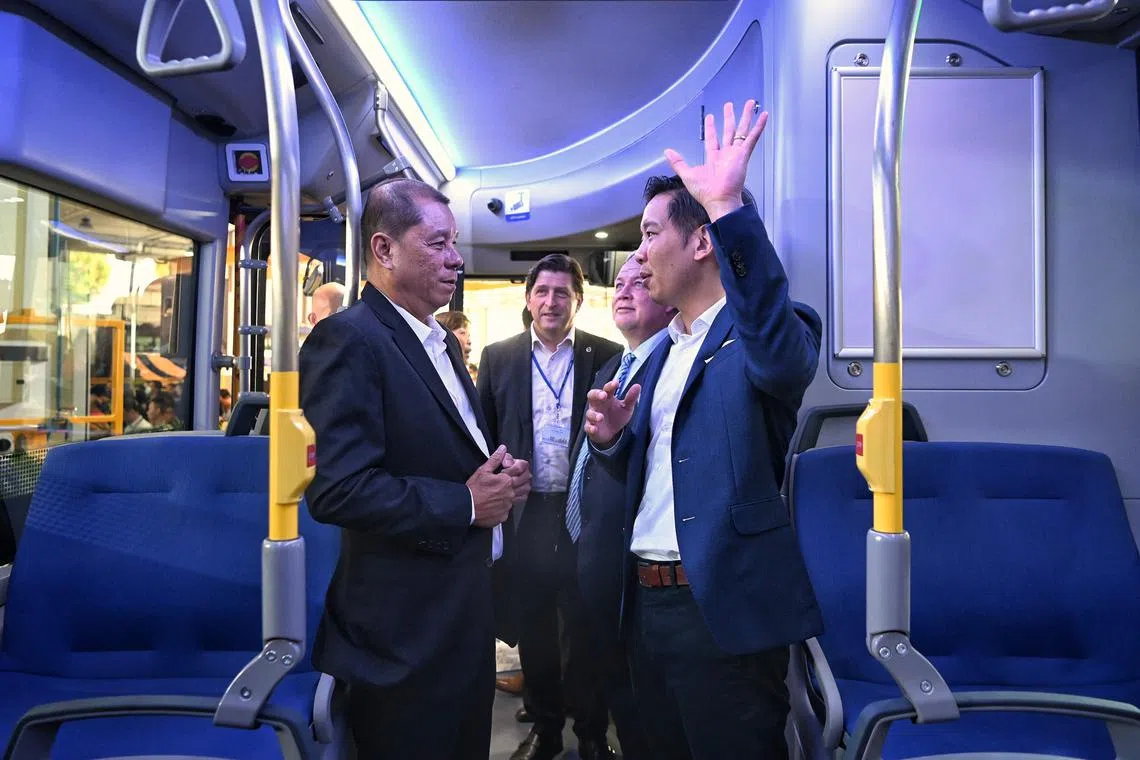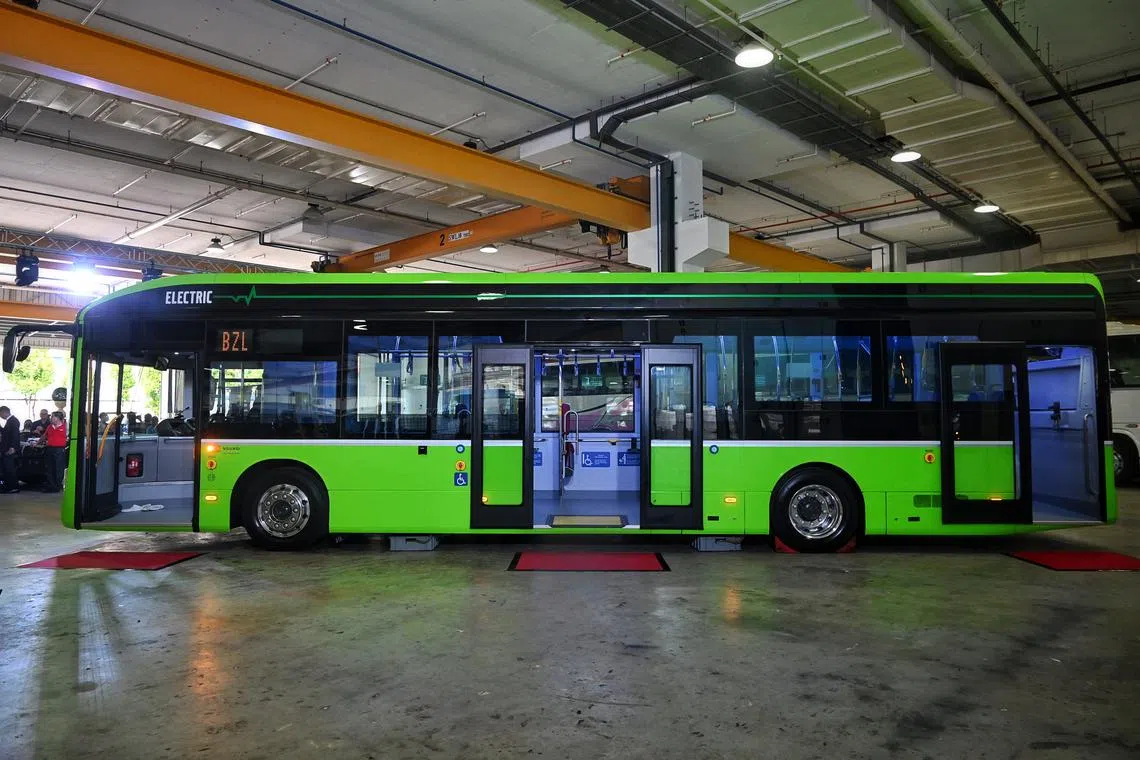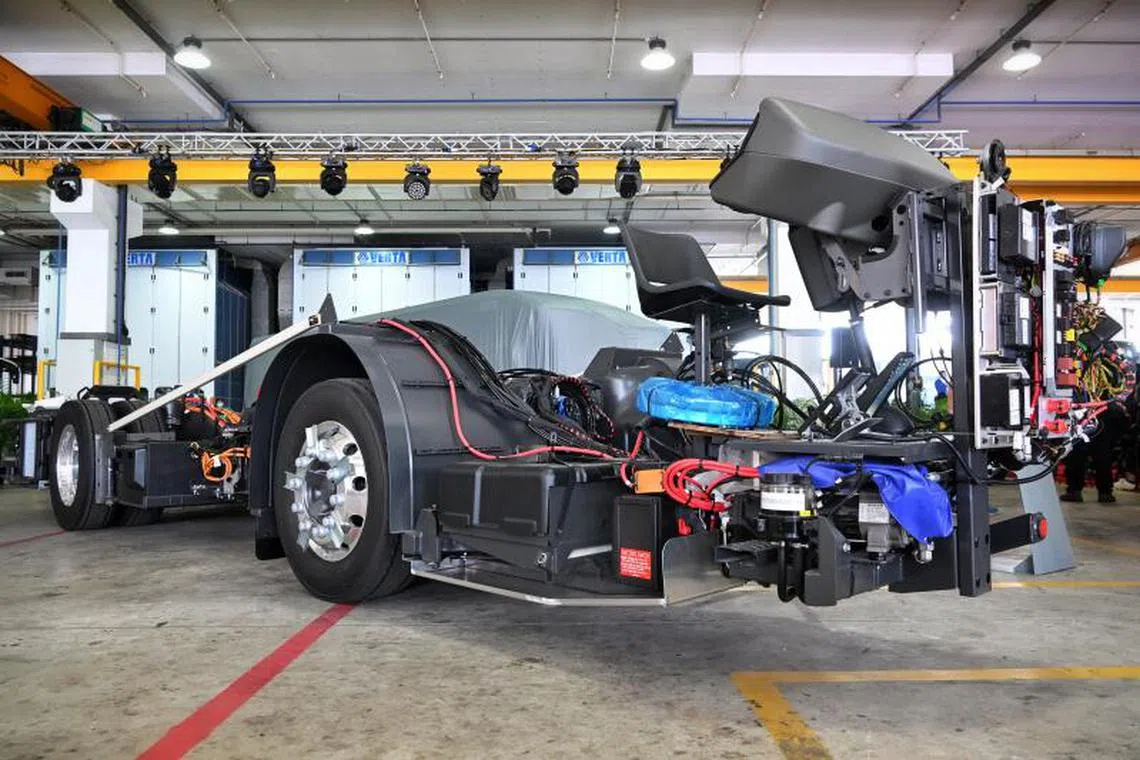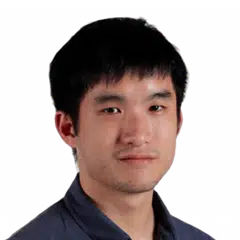Made in S’pore: Local bus builders eye slice of electrification pie
Sign up now: Get ST's newsletters delivered to your inbox

The Volvo BZL-SC Neustar City electric bus was unveiled after a year-long collaboration between Singapore company SC Auto Industries and Swedish vehicle manufacturer Volvo.
ST PHOTO: CHONG JUN LIANG
SINGAPORE - A made-in-Singapore city bus powered fully by batteries will go on trial in the coming weeks as local bus-building companies look to capitalise on the Government’s commitment to electrify the public bus fleet here.
The 12m-long, three-door Volvo BZL-SC Neustar City electric bus was unveiled on Thursday after a year-long collaboration between Singapore company SC Auto Industries and Swedish commercial vehicle manufacturer Volvo.
It is the first electric bus to be built in Singapore, and the prototype designed specifically to meet local bus standards will be tested on the roads here by the end of 2022, the companies said in a joint statement.
Volvo provided the chassis and the lithium-ion batteries for the bus, while SC Auto, which has decades of experience making private buses and coaches, designed, manufactured and assembled the bus body at its plant in Senoko.
Some key features include an emergency exit at the rear of the bus, a first here, and the fact that 90 per cent of the vehicle is recyclable, including the batteries.
SC Auto managing director Rachel Lee said her company already has the capacity to make 1,200 electric buses a year at its factories in Singapore and Myanmar, and it has invested between $2.5 million and $3 million in research and design alone.
If successful and production is ramped up, the project is also expected to create up to 100 new jobs in Singapore, in addition to the 100 workers already employed by the company here, Ms Lee said.
Minister of State for Trade and Industry Alvin Tan, who attended the launch on Thursday, called it a historic moment.
“The transport sector accounts for about a fifth of global emissions, and there is a huge potential for sustainable transport to impact climate change,” he said.
In March, Transport Minister S. Iswaran laid out new plans for Singapore to cut its land transport emissions by 80 per cent from a peak of 7.7 million tonnes in 2016 to 1.54 million tonnes around 2050.
One of the ways by which the Government plans to achieve this is to completely replace the mostly diesel-powered public bus fleet here with cleaner-energy vehicles by 2040.
More than 400 diesel buses will be replaced by fully electric ones by 2025, and more electric buses will be added to the public bus fleet as the remaining diesel buses reach their statutory lifespan of 17 years.

(From left) Chairman of SC Auto Industries Tan Siow Chua, Senior Vice President, Business Unit Chassis, Volvo Bus Corporation Dan Pettersson, Ambassador of Sweden in Singapore Kent Härstedt and Minister of State for Trade and Industry and Culture, Community and Youth Alvin Tan.
ST PHOTO: CHONG JUN LIANG
By 2030, at least one in two public buses here will be electric, bringing the number of battery-powered buses from 60 today to about 3,000.
This commitment by the Land Transport Authority (LTA) is one reason why SC Auto is dipping its toes into electric vehicle (EV) manufacturing and building city buses for the first time in the company’s history.
Another factor was the impact of Covid-19 on the tourism sector, which SC Auto had focused on previously.
LTA’s 2030 goal has also generated interest from other players, including local bus builder LexBuild, which has its own line of Hola private buses and distributes buses and spare parts from Chinese brands.
The company recently showcased a new electric city bus prototype under its sub-brand LexSwitch at the Singapore International Transport Congress and Exhibition in early November.
LexBuild’s group chief executive, Mr Charles Tan, told The Straits Times in an earlier interview that his company spent close to $1.5 million to design the new electric bus in-house.
It then sourced quality components from various countries, and commissioned Chinese manufacturer Wisdom (Fujian) Motor to put the bus together according to LTA-compliant specifications.
Mr Tan said the company had already thought about moving into the EV space before Covid-19 struck, and a sharp drop in local demand for private buses during the pandemic cemented the decision.
“We still believe there is a market in Singapore, but we have to do something different... With electric buses, there is an opportunity for us to design the whole bus from scratch,” he said, adding that the company will take part in future LTA tenders for electric public buses.
Both SC Auto and LexBuild cited their local knowledge and design and engineering expertise as competitive advantages.
For instance, the Volvo-SC Auto bus is tailored to the hot and humid climate in Singapore and was tested here under these conditions, Ms Lee said.
The bus body structure is made from a stainless steel that is highly resistant to corrosion, and the insulation and double-glazed glass windows reduce heat transfer to keep the interior cool.
Mr Mats Nilsson, Asia-Pacific Central director of Volvo Buses, said his company had been developing a bus chassis suitable for tropical markets, and it needed a good partner to build the bus body.
“We decided (SC Auto) has good quality, good technology, and overall, we should have a cost-competitive offer,” he said.
“More and more people are concerned about supply chains and after-market support, so having this local presence makes a lot of sense.”

he bus body structure is made from a stainless steel that is highly resistant to corrosion.
ST PHOTO: CHONG JUN LIANG

The chassis of the Volvo BZL-SC Neustar City fully electric, three-door, single-decker bus.
ST PHOTO: CHONG JUN LIANG
SC Auto also has set its sights on overseas markets, especially in the Asean region. The company will also compete for government and private tenders in Singapore and overseas, such as in Australia and Malaysia, Ms Lee said.
But for her, the most important benefit of producing electric buses locally is that it will help to build up the EV ecosystem here, which is why the company plans tie-ups with tertiary institutions to train its workers and nurture new talent.
Ms Lee said: “We are not just going to build a vehicle, but develop new technologies, and this gives our new generation the opportunity to do that.”



